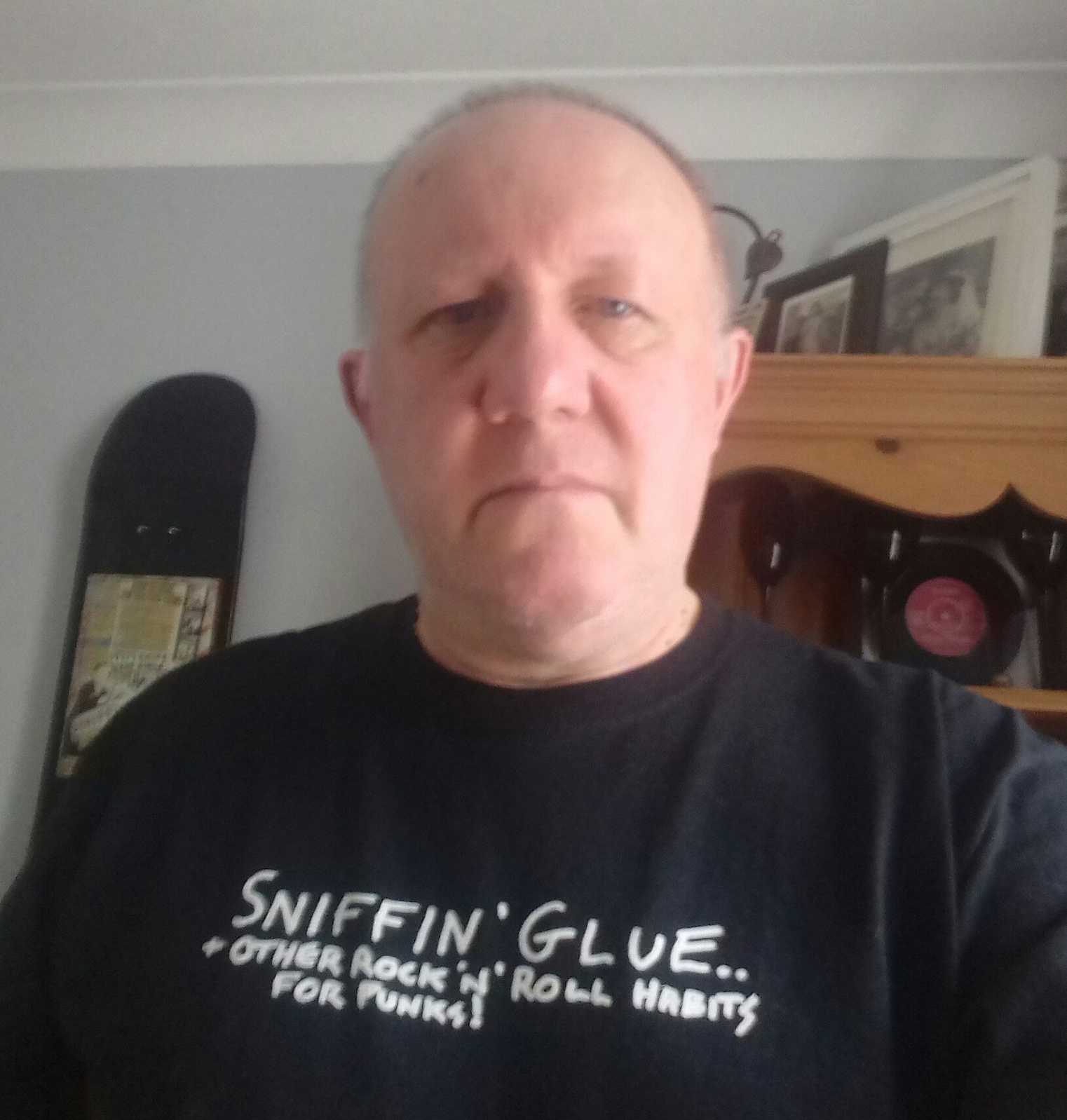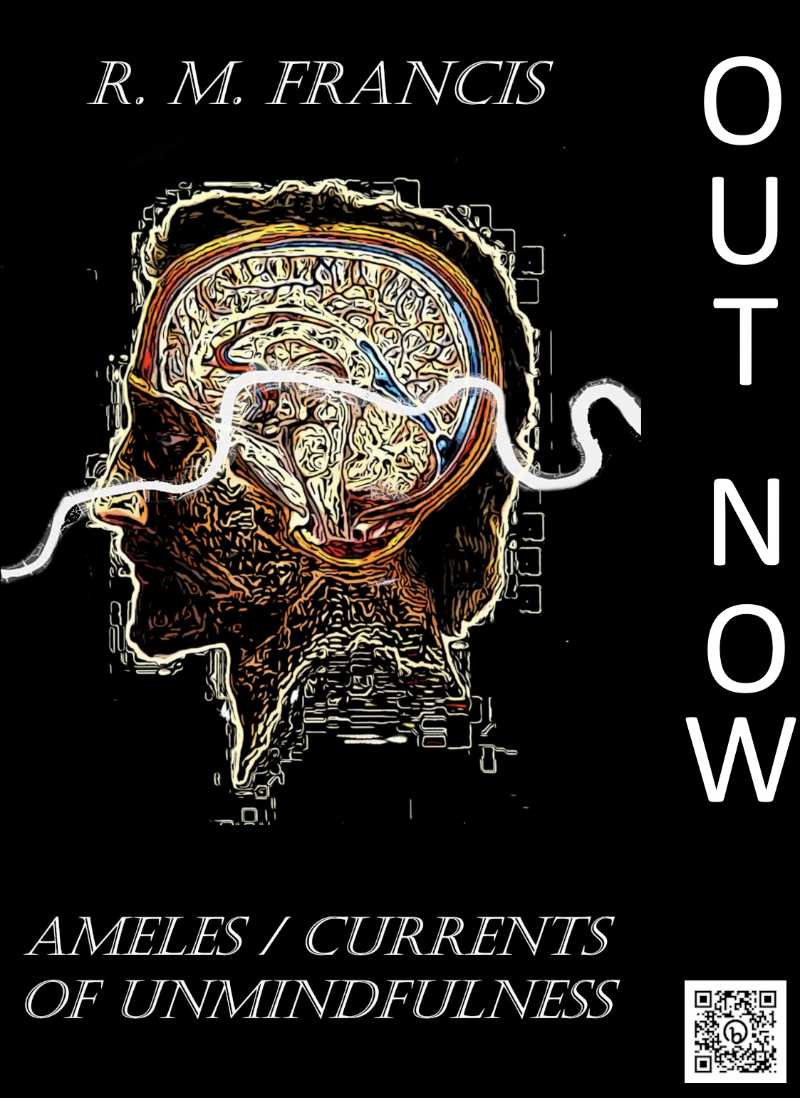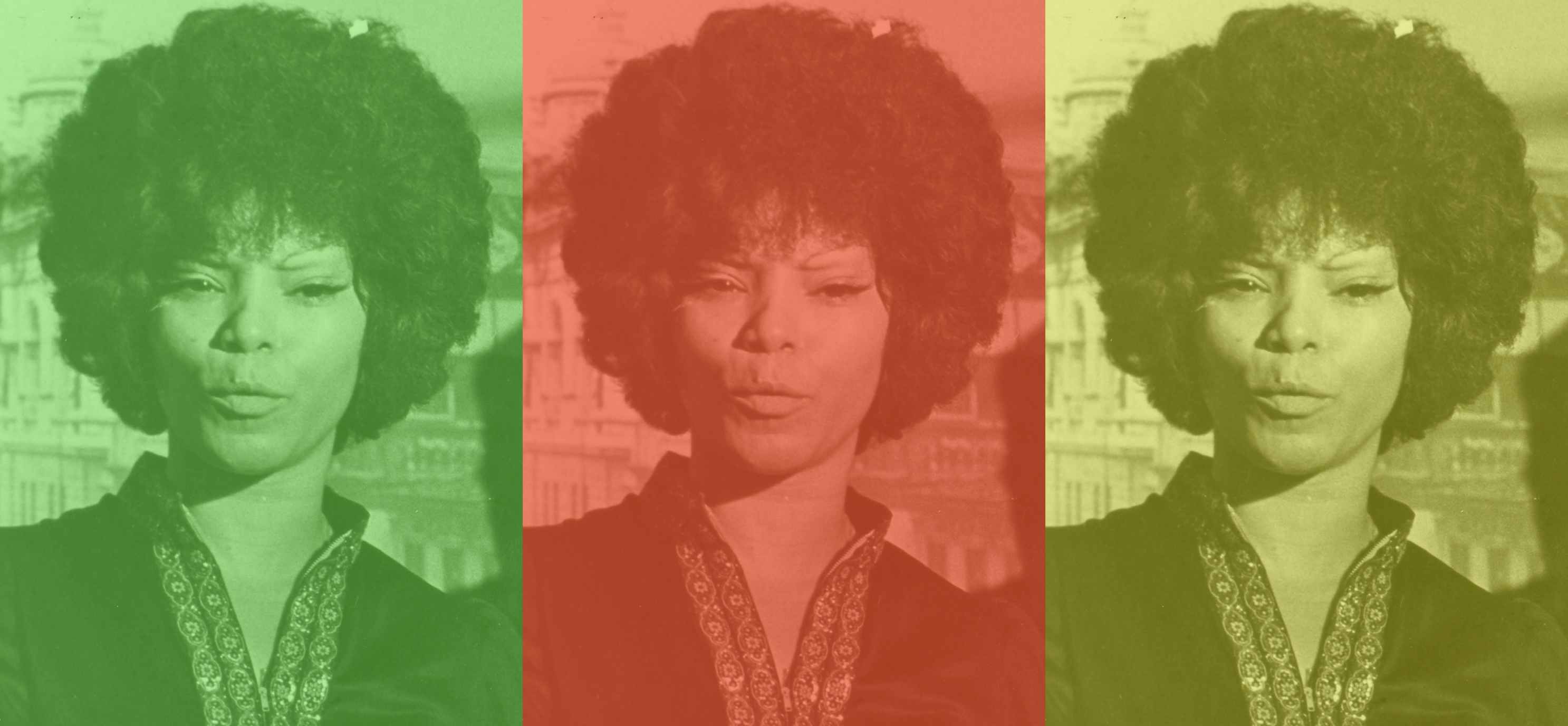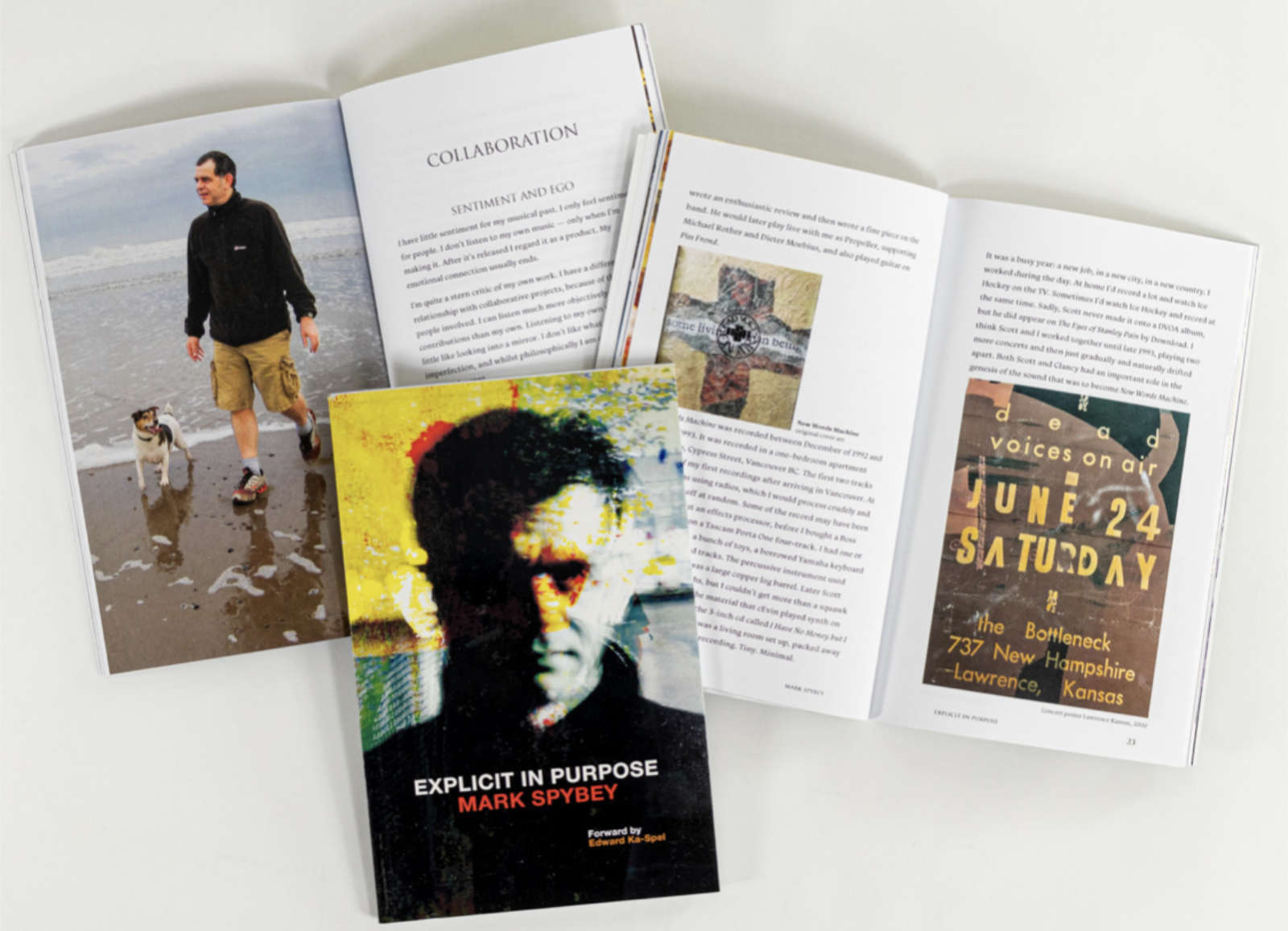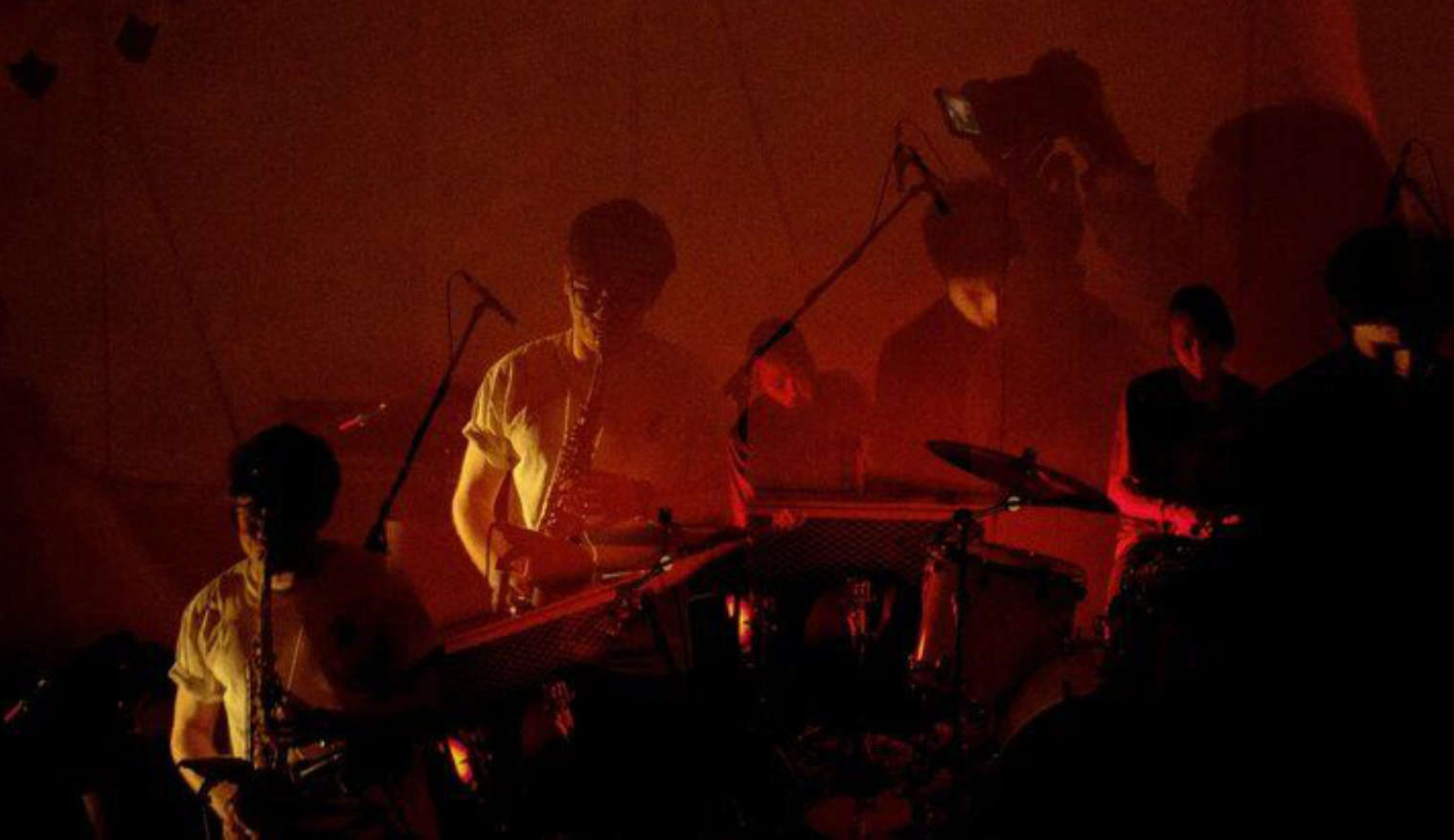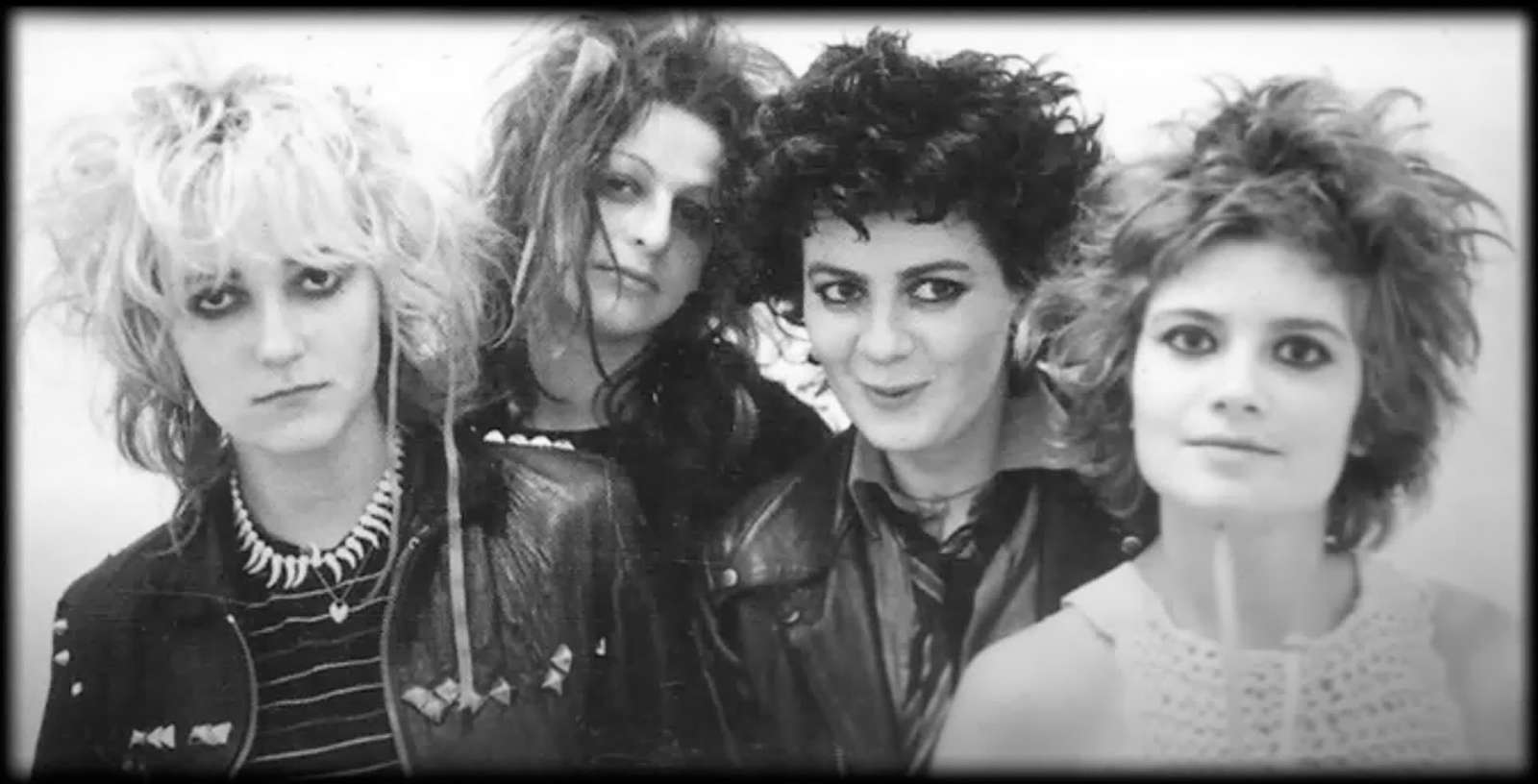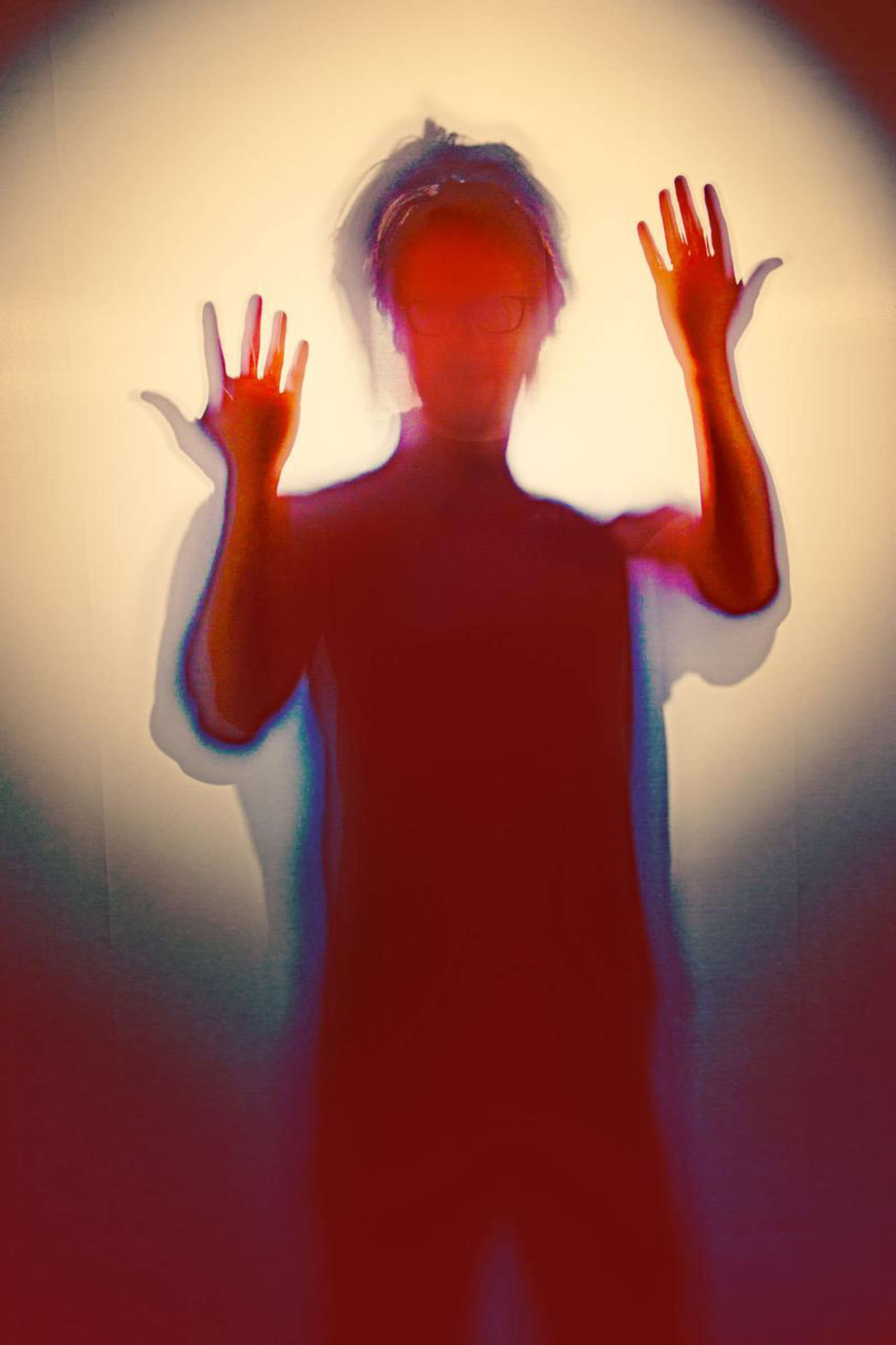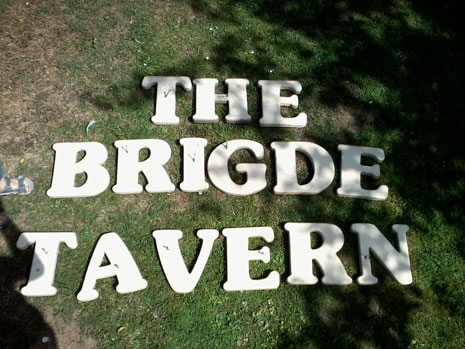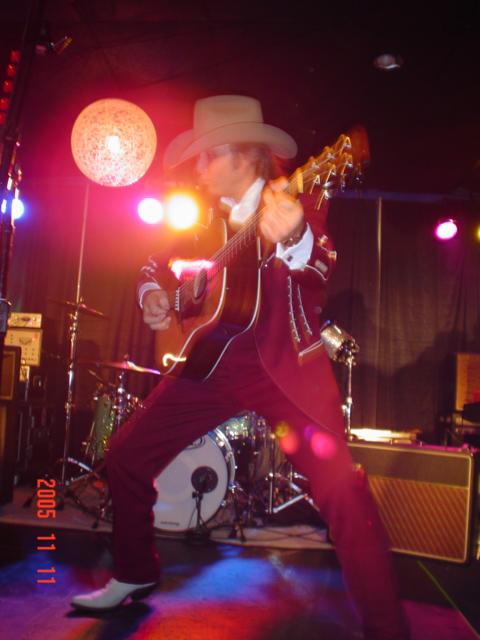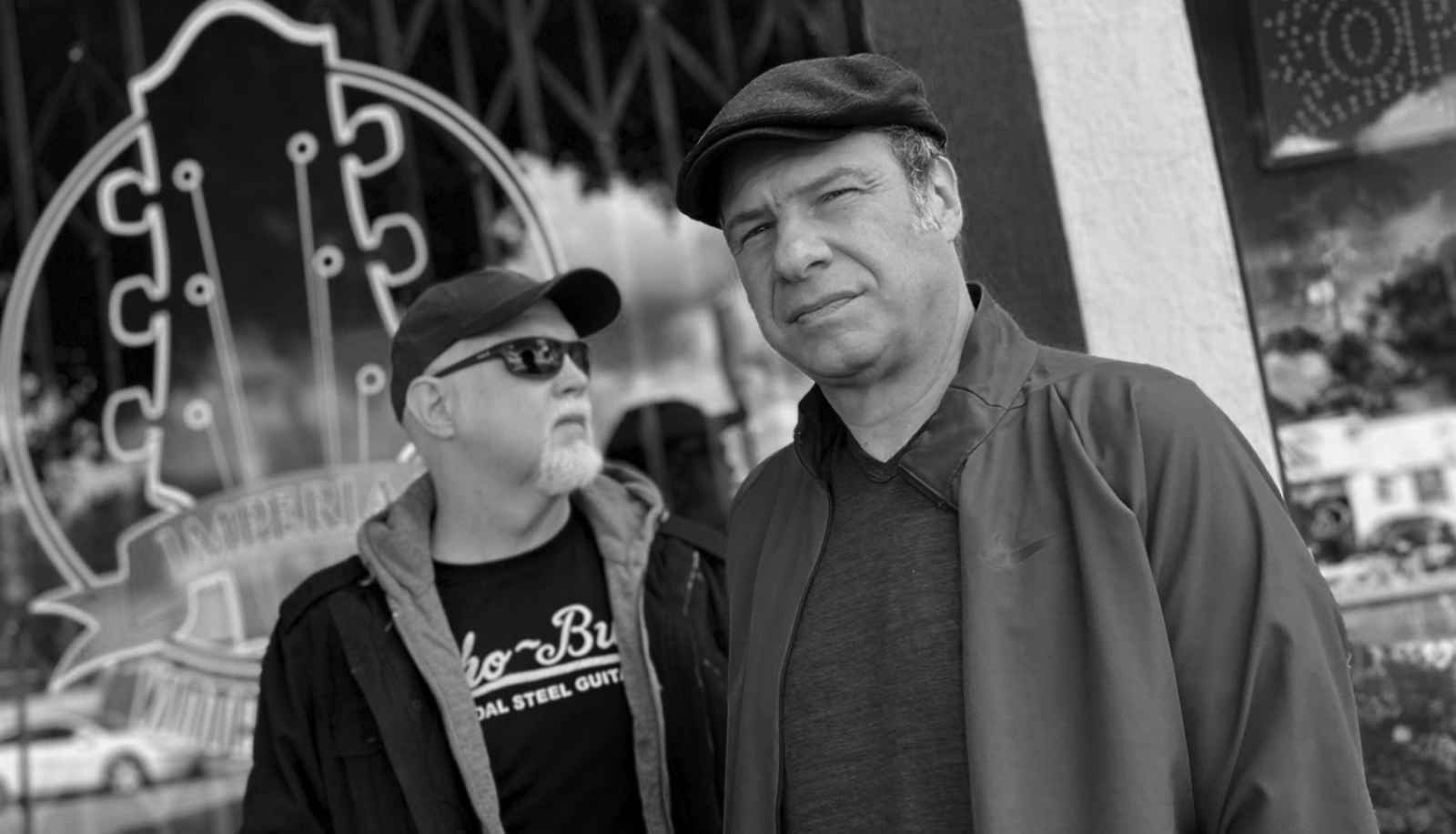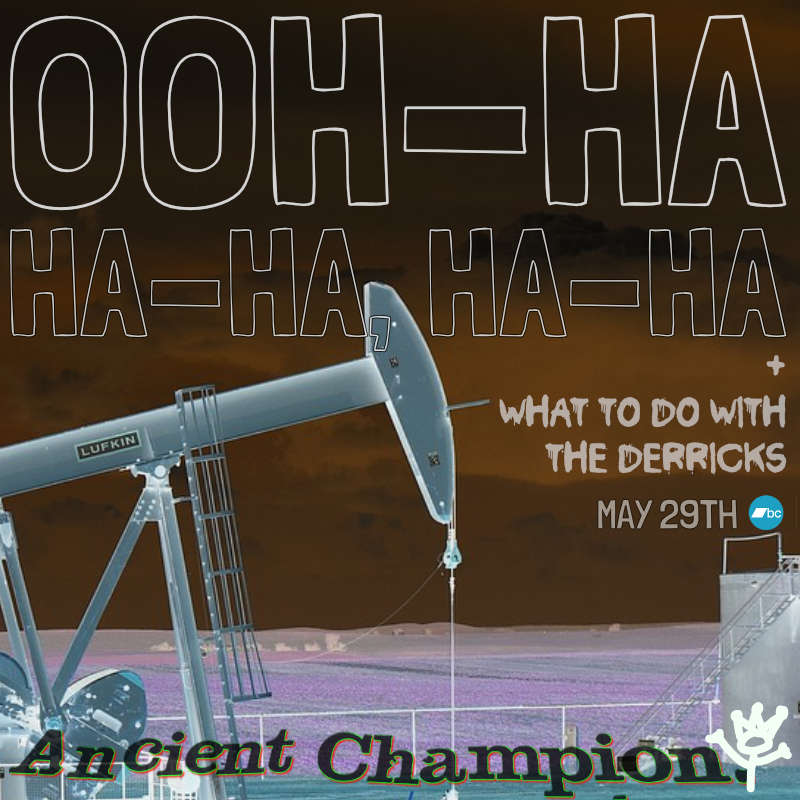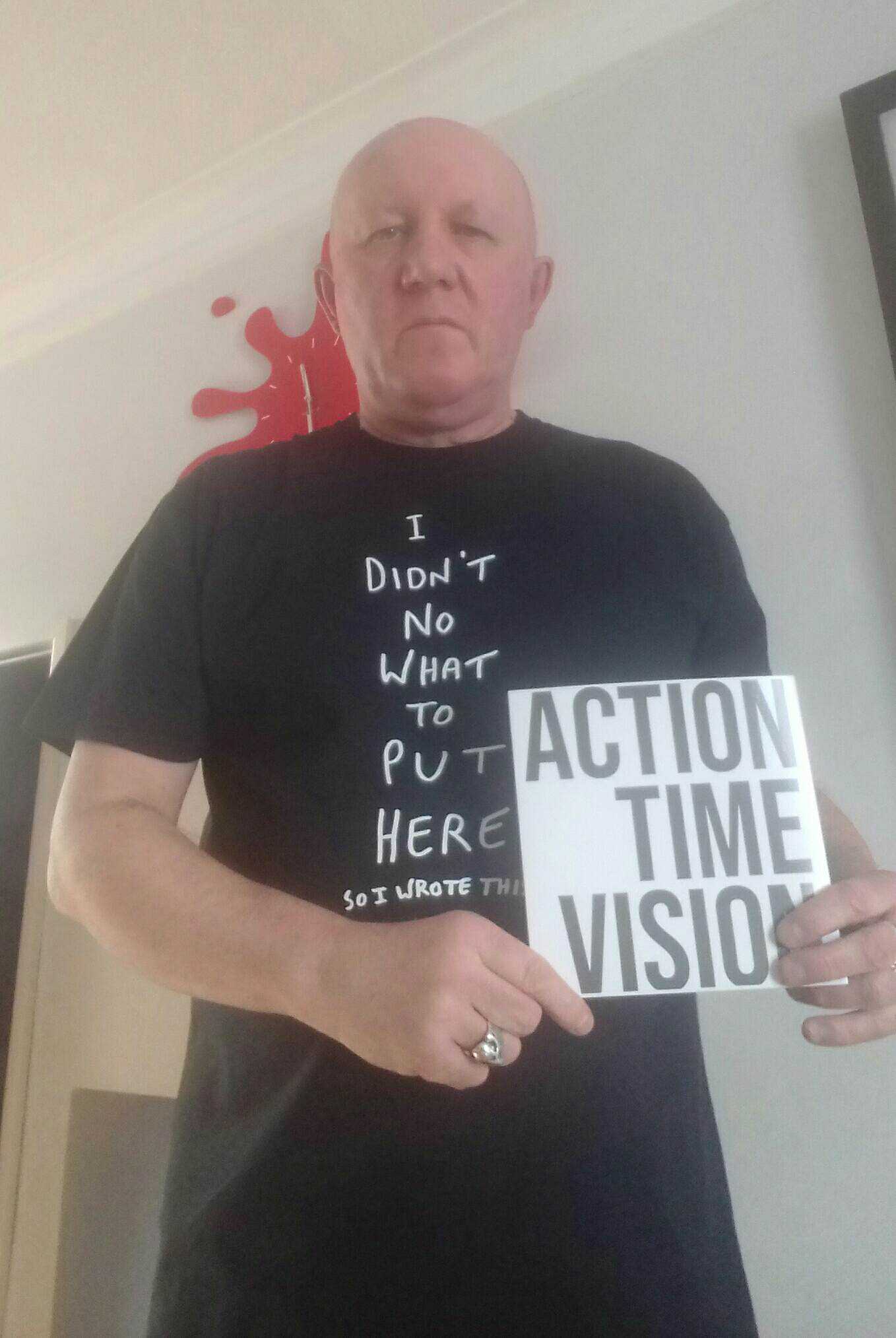 “I'm always moaning. The other day a label approached us to do an ATV compilation and they wanted to reissue ‘Action,Time, Vision’ and the first thing I said was, “Why would you want to do that? That’s not what the world really needs right now.” That's my initial reaction to most of these offers - “Why would you want to do that? You're not going to sell any.” I was a bit like that with this new book on ATV [Lost in Room on Fourth Dimension]. Who'd want to read that, you know?”
“I'm always moaning. The other day a label approached us to do an ATV compilation and they wanted to reissue ‘Action,Time, Vision’ and the first thing I said was, “Why would you want to do that? That’s not what the world really needs right now.” That's my initial reaction to most of these offers - “Why would you want to do that? You're not going to sell any.” I was a bit like that with this new book on ATV [Lost in Room on Fourth Dimension]. Who'd want to read that, you know?”
Despite being a pivotal figure in the creation of punk, producing the original punk fanzine Sniffin’ Glue (which inspired a generation of others to follow in his footsteps and produce their own fanzines), running Step-Forward Records (home of The Fall, Sham 69 and Chelsea, amongst others) and forming his own iconic band, Alternative TV (who have a new album due out later this year), Mark Perry is still full of doubts. Not that this prevents him from taking a few well aimed (and deserved) shots at those he sees as holding back musical progress by looking over their shoulders to the past. Holding back is simply not in his vocabulary. We sat down with Mark and Fourth Dimension publishing house and label boss Richard ‘Richo’ Johnson to set the world to rights between us.
Outsideleft: You mentioned you have some doubts about things you said in the new book Lost In Room on the early years of ATV. Are you worried people might have a go at you about those?
Mark Perry: Yeah, I was worried about feedback from other people, as I'm a great one for changing my mind all the time. One minute with ATV we're gonna play rock music, then in six months time I want to be a noise band, so now let's make noise instead. I'm forever changing my mind and the problem with these long-form interview things is because they take place over a certain amount of time, I may have changed my view on something I said last year. As long as people approach it with that in mind its okay, but I do feel a bit embarrassed that I've slagged people off - Geoff Travis [head of Rough Trade Records] in particular, and various other people along the way. I feel a bit embarrassed about that now.
Richo: There's nothing malicious in there though. Some of it's quite playful. Even saying you are going to bash Geoff Travis over the head with the book. I mean, you can't take that seriously, can you?
Mark Perry: But in black and white it says I have threatened to hit Geoff Travis with a hardback book, which sounds quite serious and now it’s set in stone! I’ll tell you a little story. Because I come from Southeast London, there's a little part of me that's like something out of The Sweeney that suddenly appears. You have to be careful sometimes about what you say. Saying I am going to hit Geoff Travis with a book is a similar thing. These things get blown up and can get exaggerated. Someone could say, “Did you hear about that Mark Perry book? At one point he threatens to hit Geoff Travis with it!” and then, suddenly, people who have never read the thing are tweeting about it and it's all over the internet.
OL: That's a good point. When people read books like yours, a lot of them will be scanning it looking for mentions of themselves, because everyone's so egotistical they're only interested in what it says about them. They might then get upset if you slag them off because musicians are very sensitive creatures, aren't they? But again, isn't that a part of you? You've always called it like it is, right back to the Sniffin' Glue days and that is something that people know about you, and I think they love you for it.
Mark Perry: With Geoff Travis, there was a particular issue I had with him, which is all explained in the book. Whilst I was angry with him, I was really close to Geoff back in the Sniffin' Glue days. He gave us the back room of his [Rough Trade] shop to do Sniffin' Glue in. He started to be very dismissive of bands like Sham 69 and Chelsea, though. He is a terrible snob and had a very blinkered middle-class, university-educated, view of what punk should be and he thought that Rough Trade were the only label that could do that properly; that if it’s not on Rough Trade, it’s not worthy. But then he's been very successful, much more successful than me, you know. He signed The Smiths, which is incredible.
OL: And he gave lots of opportunities to bands that probably wouldn't have got a deal otherwise to get stuff released.
Mark Perry: And possibly some that some that should never, ever, have seen the light of day!
OL: Some of the other bands on the Rough Trade (The Raincoats, Kleenex, etc.) changed the agenda and showed that women in bands should be more equal and not feel they had to strip off all their clothes to be in a successful band.
Mark Perry: One of the first women in punk was Debbie Harry, and Debbie Harry was still that cute, sexy woman, you know. Now, so many girls in bands go onstage in their underwear and it’s all gone backwards, but the bands that really changed the way girls were seen were Gaye Advert in the Adverts, The Slits, Raincoats, Kleenex, people like that, you know… the Au Pairs, Poly Styrene. They showed they didn't need to rely on showing their bodies to make music.
Richo: So there is a positive side to Rough Trade, too. It’s not all just Geoff Travis being a snob!
Mark Perry: The last time I met him was probably about five or six years ago at one of those Rough Trade anniversary things. We were very polite to each other. You know, we had a little chat. So if I saw him now I'm sure we'd be fine.
OL: Probably best not to meet him in a bookshop though. Just in case! In the book, you talk about nostalgia and whether it's a good thing or not, and also about how things that happened at that particular time seem to have a greater depth and quality than they do now and, therefore, that’s why people want to reissue things and write books about it. Is that just backward-looking through rose-tinted spectacles, or do you think it's worth capturing for historical reasons?
Mark Perry: This is the thing, I don't think it is reaching out to any new people. People that were into punk and new wave are now in their 60s and maybe retired and have lots of disposable income. They want to buy books and CDs to validate their teenage years and read about how good it was to give themselves a pat on the back. I know that sounds quite cynical, but I honestly think the biggest audience is people who just want to be reminded how good it was.
I've recently worked with people in New York on a range of Sniffin' Glue t-shirts. I didn't want to do it originally, but this is a completely new audience, so I find that a more interesting project. I think a lot of the problems with things like the Rebellion Festival is that it's preaching to the converted, people that already know about it, so you're just regurgitating it all the time. Will it really reach a new audience? I don't think so. It's like a theme park because people go there to be reminded what it was like when they were 18, but in a safe environment, because they're all overweight now, they drink too much, they've all got mortgages and they all go back to their hotels afterwards. The great irony of what punk has become is it's now this thing that we used to rail against. We used to rail against nostalgia, and punk has now become that. I find it really depressing. It’s all become like a theme park for people that are too old to do something new. We still want to listen to what we suppose is cutting-edge music, and read endless biographies or autobiographies about people from 40 years ago.
OL: You are making a powerful argument for not buying your book!
Mark Perry: It's quite sad to see, though, and there is a whole nostalgia industry out there feeding it. The weirdest act on the circuit is Steve Ignorant. He does a set of Crass songs and of all the bands you can think of, I wouldn't have thought Crass would do that circuit. Maybe a benefit gig, or a one-off in a weird venue, but the fact he is doing acoustic versions of Crass songs is fucking awful, isn't it? It really goes against everything they stood for.
OL: You can even buy Crass cufflinks now.
Mark Perry: That is really twisted, that! I don't really know why I should care, or even if I do care, but if I did, the worry for me would be that this obsession with the past means we keep looking over our shoulders and don't focus on new creative ideas and new stuff that is being created out there now. For example, Nirvana are bigger now than they were when Kurt Cobain died, which does reflect badly on the state of the current music scene. There isn't anything as edgy as that now to become the new Nirvana, or Sonic Youth, or Metallica, and I worry that new music has been stifled, is being squeezed out, because of all this old stuff is out there.
OL: Talking of old stuff, don't you get fed up being asked about Sniffin’ Glue all the time because it comes up in every single interview? Is it still something that you like talking about?
Mark Perry: I don't mind talking about if people are genuinely interested in it. I used to rail against it because it used to get mixed up with what I was doing musically. I thought that if people are interested in Sniffin' Glue, they're not gonna be interested in what I consider my more serious music. But I tend to separate them now. Sniffin' Glue is something I'm really proud of. I mean, it was the first UK punk fanzine. It's incredibly influential. Everyone knows it as the first. So, now I've embraced it. I'm quite proud of it. In fact, at the moment, we're trying to get the Sniffin’ Glue compendium reissued. I'm really glad we ended it when we did, though, at 12 issues, because the worst thing would be to do more than that. So, yeah, I'm really proud of it and I don't mind talking about it.
OL: It certainly inspired me, and probably Richo as well, because we both did fanzines. Coming back to the ATV book, you were always doing something that broke the mould. Your second album, Vibing Up The Senile Man, was not just another record, the same as the previous one. You kept moving forward and you're still doing that. With the latest record, Direct Action, that's very different again. You've always had that don't look back, always look forward element I think.
Mark Perry: I always have. I had an inquisitive mind music-wise, I was still listening to Frank Zappa and Can and Jazz and I didn't want to exclude those influences and just carry on pleasing the Manager. I wanted to follow my inquisitiveness, so we ended up with Vibing…. But, then, two years later there might be a pop album. Whatever the music is, I quite like the craft of it. So, if I'm going to write a song, or do a pop album, I want it to be the best we can, not third-rate. I always want us to try to be the best we can. I've never done music to be accepted. I've always liked to push the boundaries a bit, you know, push against things.
OL: Rock careers are all about building towards the big break in America, like The Clash. You've done everything you can to not have a ‘rock career’, even to the extent of damaging your own popularity sometimes.
Mark Perry: We could have gone the way of the Buzzcocks, Stiff Little Fingers and all those bands because we were good songwriters, we could write good rock songs, but I decided I didn't want to go down that route. In 1978 the Buzzcocks would go out on these 30 or 40 date tours. Siouxsie started off being a bit edgy, but then suddenly they're doing these 40 date tours too. I've never been a part of all that. I used to hate touring. Miles Copeland was my manager at the time and also managed The Police and Squeeze, so I could see what a successful career looked like. I could see the sort of work that The Police and Squeeze did and they really worked hard, and I wasn't prepared to. The Police got popular by getting in the back of a van for 50 date tours of the States, Japan, all over the place, really. That's not something I would have been prepared to do. I'm the sort of person who likes to go to a record shop and then go home and have a cup of tea and listen to a record. I don't want to be on the road all the time. So, you know, part of me was rejecting the rock business. But the other problem is I was just lazy. I didn't want to work that hard, playing the same songs night after night. It is just so tedious. These other people that were successful, they were prepared to do that, they were prepared to live that life, which I was never prepared to do.
OL: Last year you did your World Tour of Cornwall, where you only played locally so you could go home every night, but you had a lot of people saying, "Oh, come to Berlin", “Come to play my town”, and you basically said, “No, you come to my town.”
Mark Perry: The furthest west we played was a place called Saint Just. It’s not quite Lands End, but it's out that way. One guy came all the way from Manchester to see us. That's incredible. ATV always get loads of offers to play, but the trouble with ATV is no matter how much weird shit we do, when they book us they think we're still like we were in 1978. It's weird that people just don't get it. You know, they still expect us to play ‘Action,Time Vision’, ‘Love Lies Limp’, or ‘How Much Longer’ live.
OL: Music is entertainment though. Whether it's Frank Sinatra, or Crass, or ATV, it’s all entertainment and people are turning up to have a good time.
Mark Perry: If people like playing live that’s ok, but I suppose I just don't like doing it. As an older person I can't see the point in someone like Debbie Harry dragging herself around. How much effort does that take? Why are these people doing it? They just can't bear to step out of the limelight can they? If someone said to me, “We want you to fly to New York to play a gig of ATV songs,” I'm not sure how much money they'd have to offer for me to want to do that, you know? We did get flown to New York in 2003 by Spin magazine. It was the 25th anniversary of punk and they had this party and they flew ATV out there to play CBGBs for $2,000 with everything included, you know, flights all paid for, all the equipment or whatever. So, yeah, I can be bought,
OL: We all have our price! One of the things in the book I think that comes across is you're quite an emotional person. You might seem on the outside quite bullish, but actually when you talked about being bullied at school and stuff like that there's a lot of sensitivity that comes across and it shows that you are quite a vulnerable person as well in some ways.
Mark Perry: I've always been like that. I don't think I've ever held back. The first song we ever put out was 'Love Lies Limp’. For a young man to be that honest about his sexuality or his approach to sex showed I was always able to talk about my feelings in songs. I've always been slightly depressive and I've never been afraid to talk about those subjects in songs. I think that's one of the reasons, like I said earlier, I couldn't have gone down that ‘rock biz’ route, because I don't think I would have lasted very long. If I went on a 30-date tour, I'd probably only last about six dates, and then I'd be trying to top myself, or been running off into the night
OL: Is ATV’s music a personal therapy for you? People might identify with that.
Mark Perry: I don't go out to try to help anybody but, yeah, it is part of a therapy. The new album came after particularly bad period of feeling really down, almost suicidal. I got through it then I made the album Direct Action. It comes from that period I went through. I think that all my work has been like that. It's maybe one of the reasons why ATV are not more appreciated than they should be.
OL: In the book there's quite a lot of talk about the early industrial music scene with bands like Whitehouse and Throbbing Gristle. Genesis P-Orridge from Throbbing Gristle was involved quite a lot with ATV in the early days as well. You seem to gravitate much more towards that side of it than you did your old punk mates. That seemed to happen quite quickly and you still have that influence now.
Mark Perry: I actually met Genesis at a dinner party with Sheila Rock, Caroline Coon, and Cosey Fanni Tutti (from TG). I was looking for something more edgy, more like punk was originally. Genesis had heard about Sniffin' Glue and I'd heard about Throbbing Gristle and the ‘Wreckers of Civilisation’ gig at the ICA., I realised that what they were doing was a lot more interesting, both musically and also visually with the graphics and the themes, than what punk was doing, so I think that's why I did gravitate a bit towards that, definitely. It was performance art, wasn't it? I admit it's something that I would have liked ATV to become, but I don't think I had it in me, really, I still had a foot in the normal rock scene. There was a part of me that never quite committed to becoming part of that Industrial scene. I think I was still conflicted at the time about what I wanted to do. In a way, we missed a bit of an opportunity there because in the early 1980s ATV just faded away.
Richo: If you didn't have that conflict in you as a person ATV would not have been what it is, which is a group that can do nice pop songs, or rock songs or something like Direct Action or Vibing Up The Senile Man. It's all of that that's made ATV what it is, and that's what I tried to articulate in my afterword to the book about you being all of these different elements. And, yes, they can contradict each other, but you need that contradiction to make ATV what it is. I think that’s to be celebrated.
OL: Last, existential, question then. Imagine that Sniffin' Glue finished and you didn't go on to form a band or run a label. You just went off and did something else. You weren't doing music at all, you just kind of disappeared off the radar. How do you imagine your life would be now?
Mark Perry: I don't know what I'd do. it's hard to work out, isn't it? You know, I think I'd be a pretty sad case. The lucky thing about me was that I had done Sniffin' Glue and some people could say that would have been enough. Then, on top of that, you put ATV, The Door and The Window and Step-Forward Records together and it’s hard to separate them all. And that process continues to this day. It’s endless. Like a lot of the people that come up through that era in the '70s, we were always going to see bands and buying records, so we wanted to be out there on stage, we wanted to be in a band. I just followed that natural course.
OL: Thanks to you both for a really interesting discussion. I’m really looking forward to the book coming out.
Essential Information
LOST IN ROOM: MARK PERRY / ALTERNATIVE TV 1977 - 1981 by Richard Johnson is published on Fourth Dimension. Order it here
